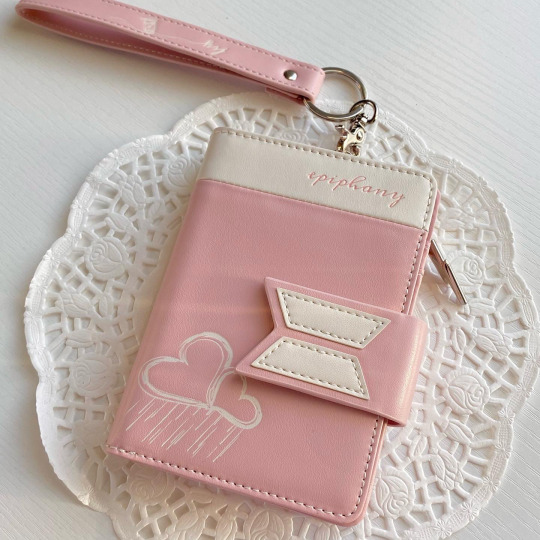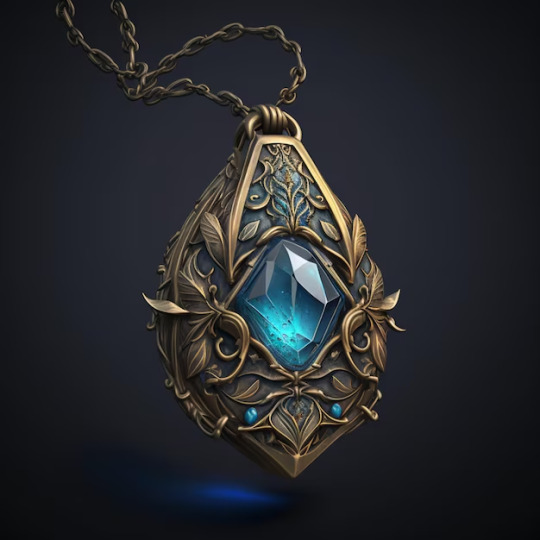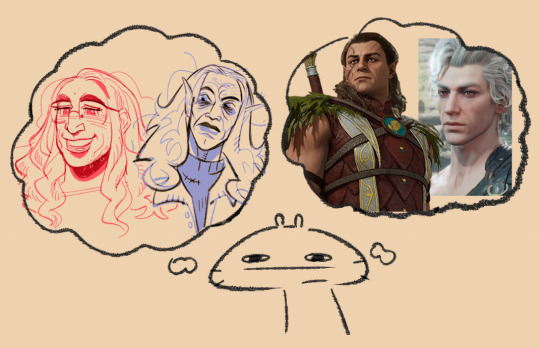#uncommon words
Text
Uncommon Words for Uncommonly Precise Thinking
Have you ever struggled to find the right word to convey a specific idea or concept? In a world where language is constantly evolving, it can be tough to keep up with the latest terms and phrases. But precision in language is crucial for clear communication, and sometimes it takes a more uncommon word to get the job done.
In this post, we'll be introducing you to five uncommon words that can help you express yourself more precisely and accurately. Whether you're a writer, a speaker, or just someone who loves to learn new words, these terms are sure to expand your vocabulary and improve your communication skills.
Bricolage
Have you ever had to get creative in order to solve a problem or complete a task? If so, you've engaged in bricolage – a French word that refers to the process of using whatever resources are available to you in order to get the job done.
For example, if you're trying to fix a broken lamp and you don't have the right parts, you might use a paper clip, a rubber band, and a bit of tape to hold it together. That's bricolage in action!
Using the word bricolage can help you describe creative problem-solving or resourcefulness in a more precise and sophisticated way. And it's not just for household repairs – bricolage can apply to all sorts of situations, from business to art to politics.
Incisive
When you need to describe someone or something as sharp or insightful, the word incisive is the perfect choice. It comes from the Latin word "incidere," which means "to cut into," and it refers to the ability to cut through confusion and get to the heart of the matter.
For example, you might say that someone has an incisive mind, or that their comments were incisive and insightful. Or you could describe a piece of writing as incisive, if it cuts through the noise and gets to the point.
Using incisive in your language can help you convey a sense of clarity and precision. It's a great way to show that you've really thought something through and can see it clearly.
Ratiocination
If you want to describe logical, well-reasoned thought, look no further than ratiocination. This word comes from the Latin "ratio," which means "reason," and it refers to the process of using reason and logic to arrive at a conclusion.
For example, you might say that someone used ratiocination to solve a puzzle, or that their argument was based on ratiocination rather than emotion. Ratiocination is a great word to use when you want to show that you've thought something through carefully and come to a logical conclusion.
Apotheosis
Have you ever reached the peak or pinnacle of something? If so, you've achieved apotheosis. This word comes from the Greek "apotheoun," which means "to deify," and it refers to the act of elevating something to the level of a god or goddess.
For example, you might say that someone's success was the apotheosis of their career, or that a particular event was the apotheosis of their efforts. Using apotheosis can help you convey a sense of ultimate accomplishment or excellence – it's a way to really drive home the idea that something has reached its highest possible level.
Regimen
When you need to describe a systematic plan or course of action, the word regimen is the perfect choice. It comes from the Latin "regimen," which means "rule" or "governance," and it refers to the way that something is governed or regulated.
For example, you might say that someone is following a strict regimen in order to get in shape, or that a company has a well-organized regimen for handling customer complaints. Using regimen can help you convey a sense of structure and organization – it's a way to show that something is being done in a deliberate and consistent way.
Conclusion
We hope you've enjoyed this introduction to five uncommon words that can help you express yourself more precisely and accurately. Whether you're looking for a way to describe creative problem-solving, sharp insights, logical thinking, ultimate accomplishment, or a systematic plan, these words have you covered.
Remember, precision in language is crucial for clear communication. Expanding your vocabulary and learning new words is a great way to improve your communication skills and make your writing and speaking more effective. So don't be afraid to try out these uncommon words – you might just find that they're the perfect fit for what you're trying to say.
#Vocabulary#Communication skills#Language learning#Precise language#Uncommon words#Expanding your vocabulary#Writing tips#Speaking tips#Regimen#Apotheosis#Incisive#Bricolage#ChatGPT
40 notes
·
View notes
Text

Gravid is an adjective that describes an animal that is pregnant or carrying eggs. The term is most commonly used in the biological sciences to describe the state of being pregnant, but it can also be used metaphorically to describe a sense of fullness or weightiness.
The word "gravid" comes from the Latin word "gravare," which means "to make heavy." This reflects the sense of weight and fullness associated with pregnancy or carrying eggs. The term has been used in scientific literature for many years, and is commonly used to describe the reproductive state of various animals, from insects to mammals.
In addition to its biological usage, "gravid" can also be used metaphorically to describe a sense of heaviness or weightiness. For example, one might describe a situation as "gravid with meaning," indicating that it is rich or full of significance.
The use of the word "gravid" in English dates back to the 16th century, when it was first used in medical literature to describe the condition of being pregnant. Since then, the term has become a standard part of the scientific vocabulary and is widely used in biology and related fields.
In conclusion, "gravid" is a versatile word that can be used to describe both the biological state of being pregnant or carrying eggs, as well as a sense of fullness or weightiness in a metaphorical sense. Its history and etymology reflect its association with the idea of weight and heaviness, and its continued use in scientific literature attests to its importance in the field of biology.
3 notes
·
View notes
Text
POV: you're a fanfic writer making notes and wow these words sure are words
Puthery: Calm before a storm
Alpenglow: Rosy Mountain Sunset
Petrichor: Distinctive Rain Smell
Gamboge
Egret
Fulvous-Duck color
Nepenthe: A hallucinogenic used as "anti depressant"
Rivulet
Vespertine: Evening occurrence
Cimmerian
Bellarmine
Barathea- Weak Silk
Bellonoid- Needle shape
Bestocracy
Bismer- Shame, Scorn
Blewit, edible toadstool
Blennophobia- Slime phobia
Borsella- Glass making instrument
Boutade: Outburst
Breme-Cruel
Buncombe/Bunkum
Bulimy- VERY hungry
Bufoniform-Toad shaped
Brontophobia- Fear of lightning
Bugaboo- Nonsense
Buss- Mischievous kiss
Byssine
Buccula-The second chin
Broch, Mangata, Moonglade-Moon ring
3 notes
·
View notes
Text

Every Filipino citizen has their own unique method of speaking Filipino words. However, several Filipino terms have been forgotten, and some people in our homeland are unaware of their true meaning. We still have a lot to learn about our own language.
Have you ever heard the terms awanggan (infinity), duyog (eclipse), or durungawan (window)? If you aren't familiar with these words yet, you're not alone. We could all be strangers in our own language, thereby let's learn some unique Filipino words!
Here are a few other Filipino terms that you can learn:
Awanggan

English translation: Infinity, Limitless
• The ability to have no limitations or endings.
Sample Sentence : Ang pagmamahal ko kay Han ay hinding hindi kukupas at awanggan.
2. Duyog

English translation: Eclipse
• The partial or complete blockage of light from one astronomical object by another.
Sample Sentence : Napakagandang pagmasdan ang mga litrato ng duyog na nakuha nila kagabi.
3. Durungawan

English translation: Window
• An opening in the wall of a building for the admission of light and air; windows often function as architectural decoration.
Sample Sentence : Palaging nakabukas ang durungawan sa aking kwarto upang makapasok ang malamig at preskong hangin.
4. Kalupi

English translation: Wallet
• A small flat or folding case or pouch, usually of leather, and is often used to carry personal items such as money, cards, or ID.
Sample Sentence : Nakatanggap ako ng regalong kalupi noong pasko.
5. Maniniyot

English translation: Photographer
• One who practices photography.
Sample Sentence : Gustong-gusto ko ang mga larawang kuha ng maniniyot na si Wonu.
6. Kalaguyo

English translation: Mistress
• A woman who, most often secretly, has an ongoing sexual relationship with, and sometimes is financially supported by, someone who is already married.
Sample Sentence : Natatandaan mo pa ba yung kalaguyo ni Mang Charles?
7. Tampalasan

English translation: Traitor
• A person who betrays a friend, family, country, etc.
Sample Sentence : Nagsisisi akong maging kaibigan ang isang tampalasan na tulad mo.
8. Dupil

English translation: Amulet
• An object, either natural or man-made, believed to be endowed with special powers to protect or bring good fortune.
Sample Sentence : Hindi ko inaalis kahit saglit sa aking katawan ang dupil na ipinamana sa akin ni Eisa.
9. Tsubibo

English translation: Carousel
• A machine with wooden horses on it that turns around and around, which people can ride on for fun
Sample Sentence : Hindi maalis ang ngiti sa mukha ni Junnie sapagkat nakasakay na ulit siya sa tsubibo sa perya.
10. Pinilakang-Tabing

English translation: Movie Theater
• A building or part of a building having seating for an audience and a large screen for showing movies.
Sample Sentence : Nagustuhan ko ang palabas sa pinilakang-tabing sa sentro kasama sina Vante at Yeppi.
0 notes
Text
10 uncommon filipino word
○Website(pook sapot)
Nakagawa na kami ng isang pook-sapot para sa aming proyekto
○To sharpen(yakis)
Kailangan kong i-yakis ang lapis ko.
○Email(sulatroniko)
Nagpadala akong ng sulatroniko sa’yo kanina lang
○Headset(pang-ulong hatinig)
Bumili ako ng pang-ulong hatinig sa mall.
○Charger(antablay)
Nasaan na ang pantablay ng telepono ko?
○Microphone(miktinig)
Gumamit siya ng miktinig upang marinig ng lahat ang kanyang sasabihin.
○Eclipse(duyog)
Sana ay makapanood ako ng duyog
○Planet Mercury(asoge)
Ang asoge ay isa sa mga planeta sa Solar System
○Carpenter(anluwage)
Kailangan namin ng isang anluwage para magpagawa ng bahay-kubo.
○Hyperlink(kawingan)
Dapat lagyan ng kawingan ang ginawa kong presentasyon sa MS Powerpoint.
1 note
·
View note
Text

Wrong-foot [ロング・フット]
1. (sports) To cause a competitor to move or put weight on the wrong foot, as by making an unexpected move.
2. (transitive, tennis) To play the ball in an unexpected direction,
forcing (the opponent) to change direction suddenly.
3. (transitive, by extension) To catch (someone) off balance, off
guard.
4. (transitive, by extension) To place (someone) at a tactical
disadvantage.
#Wrongfoot#MorEnglish [See: Wrongfoot] #MoribundInstitute#LearnEnglish
#wrongfoot#learnenglish#learn english#uncommon words#vocabulary#vocab#morenglish#moribund institute#english moribund institute
0 notes
Text
Charles and Carlos via The Today Show’s Tiktok
#the way carlos keeps bouncing into charles??#the way charles is staring at him??#the way they’re giggling at each other??#also carlos looking up and down at charles…#something feels like it’s in the air#there’s been too many bedroom eyes this weekend#sorry but once again carlos just leaning into charles the entire video???#also idk but i love how carlos always fully tries to enunciate every single part of a word#i feel like that’s very uncommon in english 😭#charlos#carlos sainz#carlos sainz jr#charles leclerc#carlos sainz 55#ferrari#ferrari formula one#c2#ferrari boys#formula 1
180 notes
·
View notes
Text
I hate how spellchecking programs will mark down your work for using words that are "too big" or "too uncommon." For multiple reasons, seeing a word you've never seen before and then using context clues to define its meaning is a good thing.
For one, you can't learn what a word means if you don't know it exists. People expand their vocabulary by seeing new words and going, "Oh! I didn't know there was a word for that. That's neat." And two, it's important for media literacy that someone can look for context clues.
Someone should be able to figure out what the word "accumulate" means from seeing it in the sentence "She wanted to accumulate as much money as possible." And if big words are discouraged, then people are less likely to learn that skill because it's not being actively taught. Which is a blow to media literacy overall.
To further prove my point, I put this post in Grammerly and I was given a 73% readability score. The words they docked off points for were "accumulate," "uncommon," "vocabulary," "discouraged," and, most ironically, "literacy."
#I feel very strongly about this as I write more for my classes#It's so crazy that you're told not to use big or uncommon words#Buddy I want everyone to learn big and uncommon words and use them always because they're fun#mod rambles
79 notes
·
View notes
Text
When a creator you got lesbophobic vibes from turns out to in fact be lesbophobic, misogynistic and a plagiarist...

#genuinely sorry to anyone who likes/liked james somerton#my wife did and I did not begrudge them that#I just happened to watch a few videos with them and didn't click with his style and got a weird vibe#lesbophobic isn't even the word it's just like... the sense that afab queers are somehow Less Queer than him a cis gay man#but I thought it was just the kind of mild misogyny not uncommon among gay men (still not okay but... you know it's a thing)#NOPE IT WAS WORSE
89 notes
·
View notes
Text
i dunno it kinda bothers me sometimes to see characters who are referred to with they/them pronouns in games described as "ambiguously gendered" or "gender left unclear" or "gender unstated" by fans and stuff like. yeah absolutely they are sometimes that. sometimes the creator had a gender in mind for them while creating them and just didn't think to talk about it in the game. but also, like. sometimes characters can just be nonbinary? and it makes me kinda sad that everyone's first reaction to they/them pronouns in games is "oh, they have a binary gender, it's just up to the player/not stated in-game".
#this is just something i was thinking about#after reading the ut localization book and seeing monster kid and onionsan described this way specifically#like. onionsan isn't really a big deal to me. they're just never talked about in the game.#i'm not treating them as Important Canon Nonbinary Rep because even though i use they/them for them#they're not canonically Anything.#monster kid is sort of the same deal? undyne uses they/them for them#and while it could be argued that she doesn't know them you could also argue they sneak out to follow her a lot#she could've met them before.#eh. it's a non-issue in this case really. at least they didn't describe napstablook that way#but honestly why are they so scared of saying 'nonbinary'. it's clear that that's what napstablook is#with the 'theirself' and all that#which. singular themself/theirself is not a word you see often in media at all!#it certainly wasn't when undertale came out! that was a pretty uncommon word in games!#so props to toby for featuring the first singular themself i ever saw in media and making me go 'woah'#but anyway. if you're curious. the lol book simply says#'the game refers to napstablook as 'them' not 'him' or 'her''#which. yeah! they're a them! but why do you act like this is some sort of narration quirk#and not just. a character being nonbinary.#i think that became pretty clear when the first few rounds of the undertale art book#came out and used he/him for them#but then someone asked toby about the pronoun difference#and he called them all back and changed their pronouns to they/them in the book once again.#honestly i. only vaguely remember hearing that so if someone has sources i'd love to see them#but like. why can't characters be nonbinary. why can't people just say nonbinary. it's not a scary word.
335 notes
·
View notes
Text

video game i cannot even play has inflicted me with 2 characters and both specific and general details about them that have harmed me with pinpoint accuracy regarding my own ocs. and tastes.
#the fact that (spoiler).#talkys#a doodley#also this one is more general but astarion and talon both having backstories involving (another spoiler).#which is not an uncommon theme for this kind of thing but just as the tie in for them being generally adjacent#bc they're not exactly similar#i dont know if that makes sense...#i need to learn more about halsin#but on the surface this definitely is an attack of the My Type#I HOPE U GET WHAT I MEAANN i worded this all so badly ignore me.
67 notes
·
View notes
Text
The Enigmatic Grimalkin: Unveiling the Esoteric Significance of a Feline Figurine

Have you ever heard of the word "grimalkin"? This word, which is not commonly used today, has a long and fascinating history in the English language. In this blog post, we will explore the origins of grimalkin, its usage in literature, its etymology, and its figurative and literal definitions.
History and Usage:
Grimalkin is an old-fashioned term for a female cat, especially an old or ill-tempered one. The word is not often used in modern English, but it has a long history of use in literature, particularly in poetry and folklore.
For example, in Shakespeare's "Macbeth," one of the witches refers to her familiar, a cat named Graymalkin. Similarly, in the English nursery rhyme "Pussy Cat, Pussy Cat," the titular feline is sometimes called a "grimalkin." Other notable uses of the term include Edgar Allan Poe's "The Black Cat" and Beatrix Potter's "The Tale of Ginger and Pickles."
Etymology:
The etymology of grimalkin is somewhat unclear, but it is believed to come from two words in Middle English: "grim," meaning fierce or cruel, and "malkin," a diminutive form of the name "Mary." The latter is thought to have been a common name for female cats in the Middle Ages, possibly due to the association of cats with the Virgin Mary.
Figurative and Literal Definitions:
In addition to its literal definition as an old or ill-tempered female cat, grimalkin has taken on several figurative meanings over the years. It can be used to describe a woman who is old, ugly, or unpleasant, particularly in appearance or demeanor. For example, "Mrs. Norris was a grimalkin of a woman, with a sour expression and a sharp tongue."
Grimalkin can also be used to describe a person who is cunning, sly, or sneaky, particularly in a negative sense. This usage is often associated with the idea of a witch's familiar, a supernatural being in the form of a cat that helps a witch carry out her magic.
In conclusion, the word grimalkin is a fascinating example of how language can evolve over time. While it is not commonly used today, it has a rich history in literature and folklore, and its figurative meanings continue to resonate with modern audiences. Whether referring to a cantankerous old cat or a shrewd and crafty person, grimalkin remains a powerful and evocative term in the English language.
#Grimalkin#LiteraryTerms#CatLovers#Folklore#Shakespeare#EdgarAllanPoe#BeatrixPotter#FigurativeLanguage#Etymology#LanguageEvolution#Uncommon Words#English Vocabulary#English Vocab#Vocabulary#Moribund Institute#MorEnglish#EnglishMoribundInstitute#English Moribund#Moribund English#ChatGPT#Midjourney
12 notes
·
View notes
Text
alphinaud and alisaie are an example of siblings written by people who know siblings very well and choose to have them call each other brother and sister, proving that telling people not to write this quirk because it gives away that you’re an only child is just shorthand for how it’s a common warning indicator of thoughtless sibling writing and isn’t actually the problem itself
#they’re so siblings I like their writing very much. This post was just an excuse to be like wow so twins#The random and inexplicable opportunities to dunk on the other one which are Immediately taken no explanation why#the fact that as soon as something Bad Happens they both freak out and need to know the other one’s fine and not hurt#even volunteering each other for things without asking and they just do it. Unless they don’t wanna. yeah#it’s like calling your dad father. If they wouldn’t call their dad father or their mom mother don’t have them call their sister sister#It’s a character trait not a siblings trait. these two DEFINITELY call them mother and father. in canon even#alphinaud deffo tattled on his sister earlier he was like alisaie was not being very gentle :/ and I was like I’m sure she wasn’t#complete side note. dadbahn#raudad#barret and raubahn fistbumping dramatically with the flaming words POWERFUL DAD behind them#they can’t shake hands their missing arms are on opposite sides o(<#powerful dads with beautiful brown eyes gentle smile so soft. Machine gun magic. Powerful Dad#kipspeak#but also sis is so uncommon I literally call my sister bro. In the Same way that you’d call your friend bro. just ban sis unless it’s#specifically something your character does on purpose
56 notes
·
View notes
Text
writing is torture but unfortunately i am a writer and will legitimately die if i do not do it
#writerblr#writer memes#reading your own work trying to decide if anything is publishable is like taking repetitive psychic damage#however.#there are people who use a.i. to 'write' (disgusting)#and talentless editorless people who have migraine-worthy books on the shelves#so while self criticism is a feature of artistry that does not miss me#i feel slightly less worried knowing for a fact that i am both a human person who wrote something and that i carefully edit most of my work#and make sure not to make amateurish mistakes like Buttery Butter (smiled happily)#or like using the same uncommon word too often within a small space#unless its intentional for prose or rhyme purposes#you can reuse common words like said or the or and mostly as you like but usually dont use words like miasma a bunch of times in the same#same paragraph#flow. pacing. word choice. grammar. writing past a certain level is both creative and formulaic#past that certain level it takes no longer only talent or skill but a trained eye and a willingness to edit#it takes a lot of reminders and witty catchphrases for common mistakes and reading and rereading your own work#and most artists start disliking their work at a certain stage of this but#you have to push on#this is your calling. you must learn to banish self doubt and put in the hard work and time it takes to make something truly amazing#learning discipline is hard for me-- i ride on talent and inspiration a lot#but discipline is necessary because a lot of the writing process is tedious backreading editing research etc#obviously you dont have to do most of your editing on the first draft like i do#but you do have to get it done eventually if you want to truly get on the next level past just hobby writing#not that theres anything wrong with doing it just for fun and casually
22 notes
·
View notes
Text
Tomorrow is tomorrow. Over there is over there. And here and now is not a bad place and time to be, especially when so much of the unknown is beautiful.
Ryka Aoki, Light from Uncommon Stars
#Ryka Aoki#Light from Uncommon Stars#tomorrow#unknown#beauty#beautiful#time#time quotes#future#American literature#BIPOC author#LGBTQ author#quotes#quotes blog#literary quotes#literature quotes#literature#book quotes#books#words#text
15 notes
·
View notes
Note
My sister is dating a couple with kids and while they were trying to figure out how to include her in the kids' lives without calling her their girlfriend until the kids were old enough to understand being closeted, they were trying to figure out what sort of "family friend" role they could label her as, which prompted my sister to realize our parents' "family friend" from our childhood was definitely fucking our parents. So I picture some version of that being how Bruce realizes about Alfred
NO BECAUSE YOU'RE SO RIGHT AFGEBRSGE LITERALLY JUST
Bruce: I just don't know how to explain to Dick that I'm dating more than one person without him revealing it to everyone we know. What do I call them? A family friend?
Alfred: well you already have a butler, so that one is out
Bruce: What does that have to do with-
Alfred:
Bruce:
WHAT
#narsposting#pennywaynes#btw: that is not as uncommon an experience as you would think#about 2 years ago my family collectively realized we had three parents all along#mine was an 'aunt' that wasn't related to us lol#she's still my best friend 5ever <3 auxiliary mom#also: cute headcanon for my heart#toddler bruce used to think butler literally was just another word like mother or father#which evolved into thinking it essentially meant 'second husband'
245 notes
·
View notes